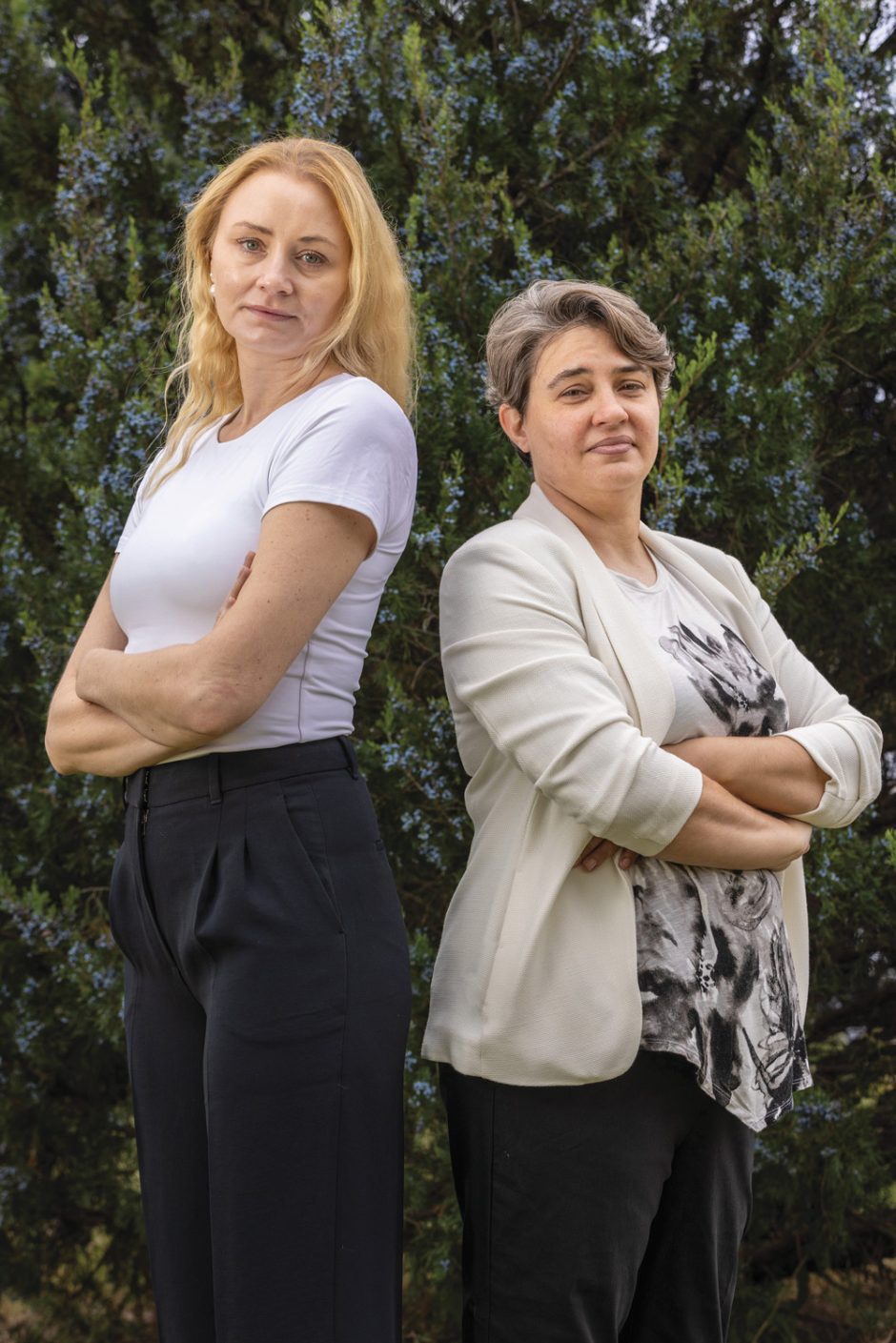
Published on Show Me Mizzou Jan. 10, 2024
Story by Jack Wax, BS Ed ’73, MS ’76, MA ’87
Without phages — viruses that infect bacteria — there would be no Cell Origins, a biotech LLC housed in the MU Life Science Business Incubator in Columbia. And without George Smith, who conducted the pioneering work on phages, earning the MU distinguished professor emeritus of biological science the 2018 Nobel Prize in Chemistry, phages would be little known, less understood and certainly not useful to humanity. It’s no coincidence that the company is based on the MU campus, the epicenter of phage research. All three of the founders of this women-owned company — CEO Leann Kuhlmann-Qi, MBA ’16; COO Jessica Newton-Northup, BS Ag ’00 and Chief Scientific Officer Mette Soendergaard, PhD ’14 — are Mizzou alumni.
Although the scientists at Cell Origins are experienced cancer researchers, the company isn’t competing to find the next wonder drug. Instead, it enables other biomedical scientists in the pharmaceutical industry or at academic research laboratories to conduct their own investigations more effectively and cost-efficiently. “Our clients work in a field called peptide discovery, where they try to find molecules that can target cancer cells,” Soendergaard says. “Once you find the right peptide, you can link it to a drug or a radioisotope that can kill cancer cells.”
Everything Cell Origins does revolves around phage display, a laboratory technique that identifies proteins and peptides — short chains of amino acids. Phage display isn’t just another lab technique: It’s an ongoing revolution started by Smith and continuing to advance biomedical research and improve the health of millions throughout the world. “Many, many drugs on the market wouldn’t be there if not for phage display,” Soendergaard says. “The whole field is exploding right now.”
Phages, which exist everywhere and in everybody, are so small that they can’t be seen by ordinary light microscopes. To genetically modify a phage, various protein-encoding genes are changed in the virus; this results in phages that display a modified protein on their surface. Once genetically modified, a single virus can be cloned, making billions of them in hours. A soup of variously modified clones (called a phage display library by researchers) is then tested against different target cells and tissues for their effectiveness at binding to them. The phages that show the most promise are collected, cloned and tested again and again in a process of controlled evolution.
In addition to providing labs with phage display libraries, the company also offers consulting services to help academics and pharmaceutical companies develop research strategies. Currently, Cell Origins is working on another product line to improve cellular research. The company is assembling a network of academic labs to beta test a kit that would verify that the cells researchers are studying haven’t changed or evolved over time, a common problem. Soendergaard envisions a future where the company manufactures and markets the test kits. Until then, the company relies on producing phage display libraries for others. “For many years, it’s been very difficult to purchase high-quality phage display libraries, and that’s what we want to change,” she says. “If you don’t have high-quality display libraries to use in experiments, then you aren’t going to get high-quality results.”
To read more articles like this, become a Mizzou Alumni Association member and receive MIZZOU magazine in your mailbox. Click here to join.



